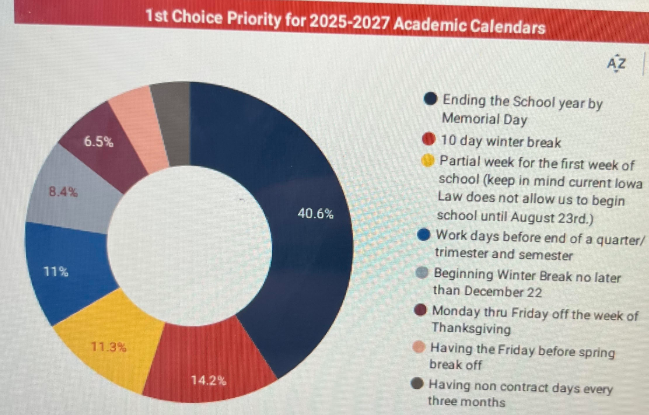Recently, phones have been a controversial topic between students and schools, with Urbandale High School banning phones and wireless devices during class. In 2023, Florida became the first state to ban smartphones from class, which caused a chain reaction among governors in America. Schools are taking extreme measures to take phones away from students. A proposed bill in Texas even called for a 30-dollar bounty for confiscated phones. So why are schools all of a sudden tightening up on phones? The truth is that schools have always been racing against technology.
In the late 1980s, the Chicago school district faced an unlikely enemy… Pagers were robbing youths of their crucial development and education. The “beepers” could send messages to friends during class time, and the city of Chicago worried that it would be too distracting in the classroom. But Chicago wasn’t just concerned about a simple classroom distraction, pagers started to become a symbol of drug dealing and a gateway to “the streets.” According to New York Times author Calvin Sims, “This use of beepers by drug dealers is particularly hampering their efforts to prevent drug abuse among teen-agers,” and other sources say that the pagers only provided a distraction in the classroom, disrupting learning and crucial development. Technology has always been a nuisance to schools, whether it’s pagers, phones, or AI. Rigid laws and school regulations need to be flexible to the oncoming tides of technological advancement, however, many people feel that schools might be too restrictive on phones.
With the complete ban on phones at Urbandale Middle School, some parents are worried about being able to communicate with students in case of a family emergency. According to Natasha Singer in “Why Schools are Racing to Ban Student Phones,” “Many parents used to freely texting or calling their children object to blanket cellphone bans.” Schools provide a substitution, though it is not very effective. Schools offer to take a call from the parent and relay a message to the student. However, this option completely takes privacy away and leaves the family’s sensitive information in the hands of the school.
One California startup company found a way to benefit from the growing restrictions. Starting as a way for live events and concerts to ban phones, Yondr has reportedly sold tens of millions of dollars in Yondr pouches to schools in 16 countries, including the United States, where they sell to 41 states. Yondr sells a pouch with a strong cloth and two magnets, which hold the phones securely in the pouch. A pouch-opening magnet is given to the school and teachers as the only way to open the pouches. Although punishments in high schools around the nation are substantial, students have found a way. The internet has been flooded with tutorials on how to open the pouches, each with various methods. The multi-million dollar company had created a pouch that could be opened with a pen, cheap fishing magnets, or by simply hitting the pouch against a hard surface. In a survey done with Oregon schools with over 2,000 students, only about 100 said that they prefer Yondr, even though most students said they could see the benefits of locking their phones away. Students’ anger towards Yondr is not unfounded. A Yondr representative had disclosed that Yondr sells pouches at a rate of around 30 dollars per student. Students object to the pouches. Schools nationwide still spend tens or even hundreds of thousands of dollars on them. But questions arise about whether these large investments in phone bans are even worth it.
Schooling and education are an important part of people’s lives, and involving phones in that process certainly has pros and cons. Teaching students the strengths of keeping a phone away, instead of forcing it away, could prove more beneficial for the student. It would be better for students to learn the consequences of having a phone out in the classroom rather than in the workplace. Taking away students’ freedom with their phones could be taking away strong self-disciplinary skills. While taking away phones could help students learn more in the classroom, it could also lead to a lack of control, which would have to be made up in the workplace. Schools are places for students to make mistakes and learn from them. We should not avoid these mistakes but rather try to teach students valuable life lessons.















